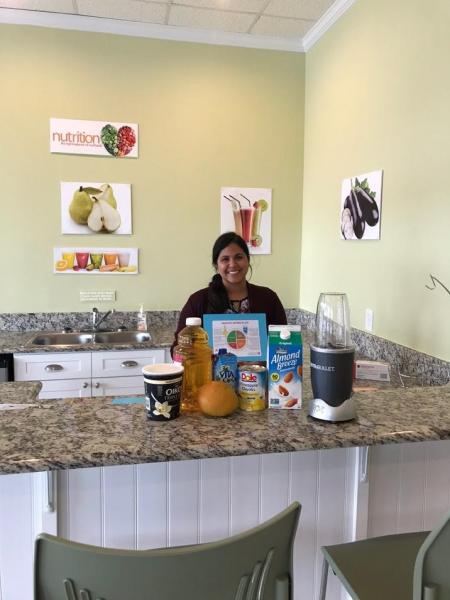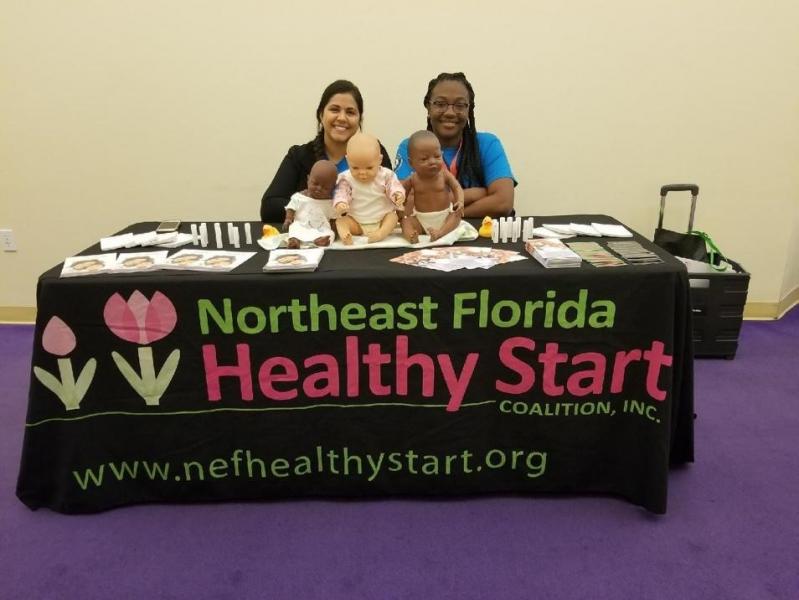The Barriers Between Low-Income Families and Fresh Produce
 As a National Health Corps Florida AmeriCorps member, I serve at the Northeast Florida Healthy Start Coalition as a Health Educator. As part of my service year, one of my tasks is to provide nutrition education to Duval’s underserved communities. Providing this service has given me the opportunity to start conversations with patients about the barriers they face on a daily basis in order to obtain fresh produce and live a healthier lifestyle.
As a National Health Corps Florida AmeriCorps member, I serve at the Northeast Florida Healthy Start Coalition as a Health Educator. As part of my service year, one of my tasks is to provide nutrition education to Duval’s underserved communities. Providing this service has given me the opportunity to start conversations with patients about the barriers they face on a daily basis in order to obtain fresh produce and live a healthier lifestyle.
Barriers such as economic instability and lack of transportation are two of the most common issues that these individuals express. For example, eating healthy cost about $1.50 more a day than the unhealthy alternative, according to Harvard School of Public Health. In addition, poor transportation services restrict healthy food access, forcing low-income families to choose between healthy yet unreachable food or unhealthy yet accessible food. Both barriers are important to note, yet it is the barriers that are not vocalized that really stand out to me such as the food culture within the community and lack of education on the importance of eating healthy.
 In between nutrition classes, I offer delicious smoothies to those within the area and because I assumed that people would flock to the opportunity, I was incredibly surprised to find out that this was not the case. Many of the patients view smoothies as an odd concoction and are very hesitant to try. It typically requires time educating the patient about all of the smoothie’s wonderful benefits before they gather up the courage to try it.
In between nutrition classes, I offer delicious smoothies to those within the area and because I assumed that people would flock to the opportunity, I was incredibly surprised to find out that this was not the case. Many of the patients view smoothies as an odd concoction and are very hesitant to try. It typically requires time educating the patient about all of the smoothie’s wonderful benefits before they gather up the courage to try it.
All of these barriers have a negative impact on the communities health because lack of fresh and affordable produce may increase the risk of chronic diseases. With heart disease, cancer, and stroke as some of the most common causes of death in Duval County, it is important to educate community members on the importance on eating healthy and providing tips on how to achieve a healthier lifestyle. Because although nutrition is not the only factor causing chronic diseases, it is still important for overall health and wellness.
This blog post was written by NHC FL AmeriCorps member, Kimberly Feliciano.
Kim serves at the NEFHSC as a Health Educator.